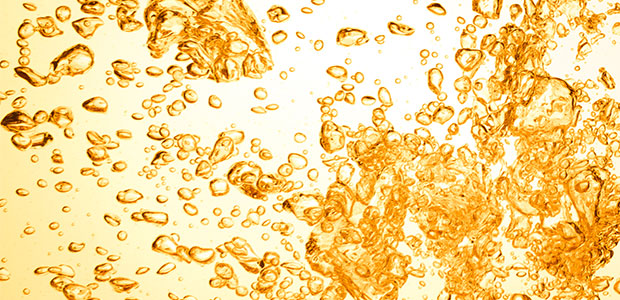Advertisement
Is Citric Acid Truly Safe?
Today many kids are suffering from tooth erosion. Could it be due to a common food additive? Citric acid: you probably know it. It’s a food additive used commonly in soft drinks, candies, marmalades, sauces, even in gummy bears. It’s exactly the same stuff you can use for cleaning teakettles, bath tubs, aquariums and swimming … Continued

Today many kids are suffering from tooth erosion. Could it be due to a common food additive?
Citric acid: you probably know it. It’s a food additive used commonly in soft drinks, candies, marmalades, sauces, even in gummy bears. It’s exactly the same stuff you can use for cleaning teakettles, bath tubs, aquariums and swimming pools, or as a universal cleanser for removing lime deposits. Citric acid is added to dishwasher detergent and metal polish because it works as an abrasive. On the packaging label it says in big fat lettering “Keep away from children.”
But what does it do in the mouth and teeth of children? An entirely new syndrome affecting the teeth of teenagers has recently alarmed many European dentists.
Professor Adrian Lussi of the Swiss Dental Clinic in Bern notes that caries (tooth decay) is declining while erosion of tooth enamel is on the rise. In a study at the University of Bristol, UK, the increasing incidence of enamel erosion was causally connected to the high amounts of citric acid added to drinks and food. Generally citric acid is considered a harmless food additive, a colourless, translucent, crystalline powder that smells like lemon. According to food regulating agencies in all countries, it can be added to food without restrictions.
Naturally, citric acid appears in lemon, limes and many other sour-tasting fruit. Have you ever watched the face of a baby when it sucks on a lemon slice for the first time? I always get a kick out of it, watching it pull faces and doing it over and over, not getting enough of it. The food industry makes full use of our cravings for that crisp and tangy taste and adds it en-masse to fruit drinks, spaghetti sauce, baby food, iced tea and everything else that needs a flavour improvement. Of course the industry doesn’t press lemon juice; it creates this stuff artificially.
Every year worldwide more than 600,000 tons of crystalline citric acid are produced, while the entire harvest of lemons and limes is only 120,000 tons. The official chemical name of citric acid is 2-Hydroxy-1,2,3-propane-tri-carboxylic acid. The reason this artificially-produced citric acid is called “natural” or an “organic acid” is that it has three carbon bonds in its formula and is therefore water-soluble. If an acid has no carbon bond it can’t be called organic. Citric acid actually grows on a fungus, namely Aspergillus niger, the ugly black fungus found around kitchen sink and bathtub tiles. But it comes in handy for manufacturing citric acid by mold fermentation of carbohydrates from molasses.
The interesting thing is that citric acid is produced in our bodies in huge amounts (two kilograms daily, in fact) but is also quickly metabolized. Therefore, it is assumed that any amount can be added to our food without causing harm.
Apparently this is not the case, as dentists have already found out in observing tooth erosion in children and teenagers. At the outpatient clinic in Giessen, Germany, doctors observed a disastrous trend in the feeding of babies. Mothers more often than ever fill baby bottles with iced tea, not knowing that the teeth are being attacked by citric acid. As a result, the baby’s first teeth do not grow properly, are too thin, break off or seem to just melt away. The numbers of these small patients in the Giessen clinic doubled in 2002 over 2001. Parallel consumption of iced tea with citric acid has increased to nine litres per person annually.
Generally, parents are not aware of the damage citric acid can do. The entire digestive system can be irritated, causing heartburn and damage to the mucous membrane of the stomach. Also the eyes, the respiratory organs and the skin can suffer with scratchy sensations from over-consumption of citric acid.
So far you will not find any cautionary statements on the labels of iced tea, soft drinks or juice with added citric acid. Manufacturers claim that there are no government restrictions on quantities of citric acid used as an additive. While nobody feels responsible for the citric acid problems, babies and children will have to pay with their teeth.




